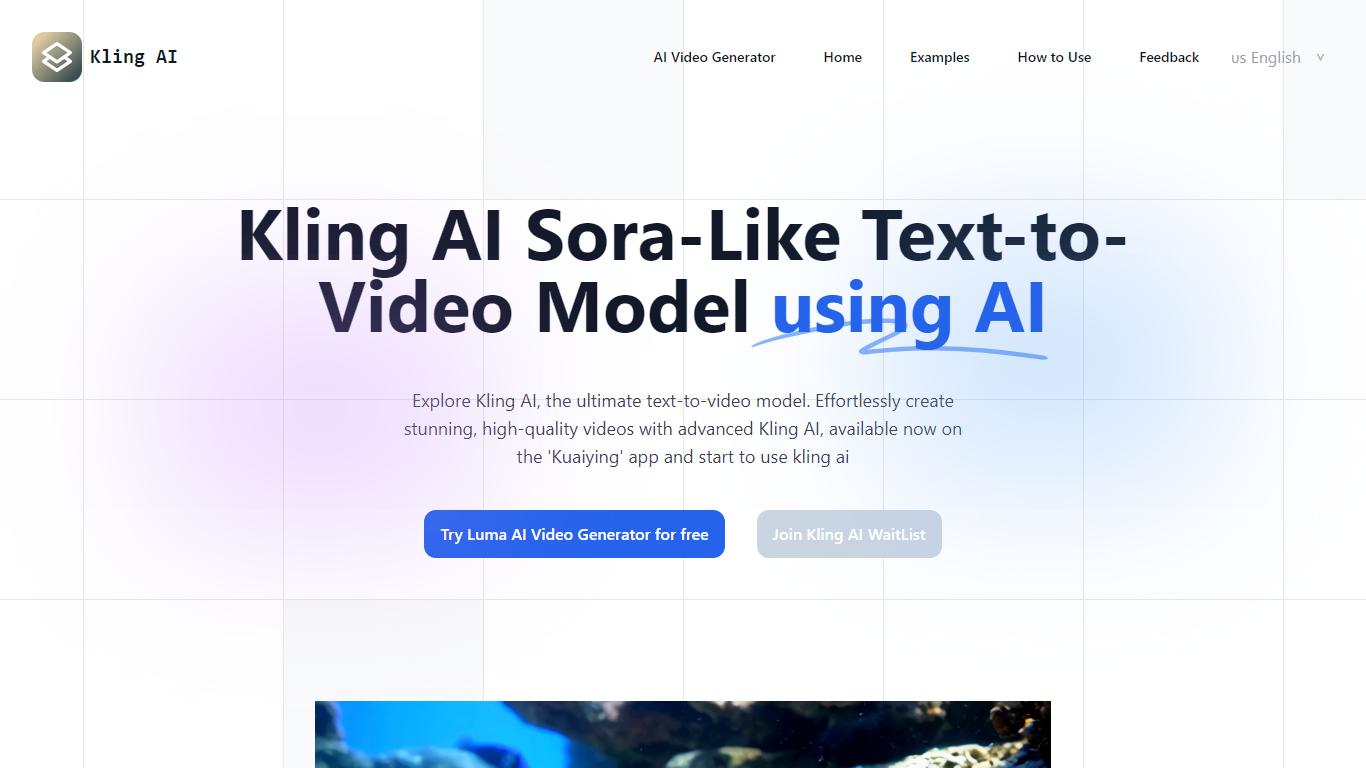The gaming industry is on the cusp of a revolution, driven by the astonishing advancements in AI-generated contentIn the rapidly evolving landscape of video game development, a new player has emerged, challenging the traditional boundaries of what's possible. Kling AI, a lesser-known but increasingly influential competitor to the likes of OpenAI Sora and Nvidia, has been making waves with its groundbreaking advancements in video game generation.Recently, Kling AI, a Chinese competitor to OpenAI Sora, made headlines by generating a video that left viewers in disbelief. Most people initially thought the footage was created using a sophisticated game engine like Unreal Engine 5. However, the reality was even more impressive: the video was entirely generated by Kling AI's text-to-video technology.
Contrary to popular belief, the recent footage showcasing a game-like environment was not created using the industry-leading Unreal Engine 5.
Instead, it was generated entirely by Kling AI's proprietary text-to-video technology, leaving many industry experts and enthusiasts in a state of awe and disbelief.
The footage, which features impressive visuals, sound effects, and a seamless integration of various game elements, has sparked a debate within the gaming community. Many initially assumed that the video was captured from a traditional game engine, unaware that it was the product of an AI system. This level of realism and attention to detail has raised the bar for what's possible in the world of video game generation.
But the truly remarkable aspect of Kling AI's achievements lies in the speed at which the technology is evolving. As Nvidia's CEO recently stated, the future of video game development will see every single pixel being generated, rather than rendered. This means that the distinction between AI-generated content and traditional game assets will become increasingly blurred.
In just six months, experts predict that it will be nearly impossible to differentiate between AI-generated video and footage from a real game engine. This shift has profound implications for the gaming industry, as it opens up new avenues for game development, content creation, and player engagement.
(ads)
Imagine a scenario where you could simply choose a game idea, and Kling AI would generate the entire experience for you on the fly. This could revolutionize the way we approach game development, allowing for greater creativity, faster iteration, and the exploration of unique game concepts that were previously too resource-intensive or time-consuming to bring to life.
The implications of this technology go beyond just game development. Kling AI's text-to-video capabilities could also have far-reaching applications in other areas, such as filmmaking, advertising, and even personal content creation. The ability to generate high-quality video content with minimal input could drastically change the way we consume and interact with media.
As Kling AI continues to push the boundaries of what's possible, the gaming industry and beyond will be forced to adapt and embrace this revolutionary technology. The future of video game generation is here, and it's being driven by the innovative work of Kling AI and its competitors. The only question that remains is: are you ready to experience the game-changing power of AI-generated content?
The Implications for Game Development
Imagine a future where every pixel you see on the screen is generated, not rendered. This paradigm shift means that any game idea you have can be brought to life instantly. Instead of spending years developing a game, developers will be able to describe their vision, and AI will generate the game on the fly. This not only accelerates the development process but also democratizes game creation, allowing anyone with a creative idea to see it realized.
The Power of Kling AI
Kling AI's breakthrough demonstrates the potential of AI in generating highly realistic video content. The implications for the gaming industry are profound:
- Real-Time Game Creation: Developers can generate entire game worlds in real-time based on simple text descriptions.
- Customization and Personalization: Players can create and customize their own game environments, characters, and storylines on the fly.
- Cost Reduction: Reducing the need for extensive human resources in graphics design and animation will lower development costs significantly.
- Innovation Acceleration: With AI handling the heavy lifting, developers can focus more on innovative gameplay mechanics and storytelling.
Bridging the Gap Between Reality and Virtual Worlds
As AI technology continues to evolve, the gap between AI-generated content and real-world visuals will narrow further. The future Nvidia envisions—where every pixel is generated rather than rendered—suggests a world where virtual environments can achieve unprecedented levels of detail and realism. This will have a transformative impact not just on gaming, but on various fields such as virtual reality, film, and even social media.



